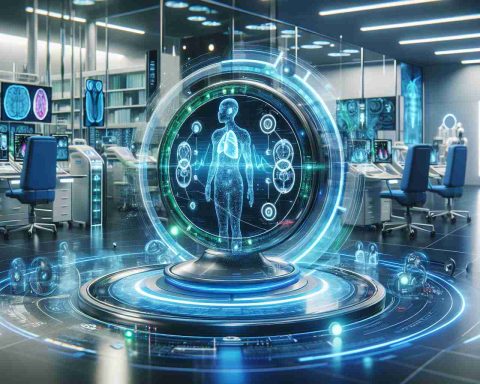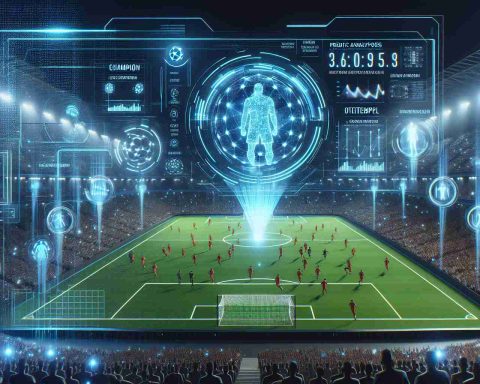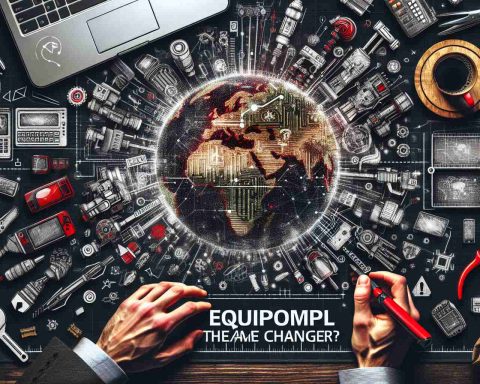Romania’s aging water infrastructure and inefficiencies are posing significant challenges due to drought, rather than climate change.
With approximately 40% water losses in the networks and an alarming 40% of urgent repairs needed, Romania finds itself in a critical situation. Access to clean and treated water remains a luxury in many rural areas rather than a norm.
In this scenario, AI emerges as a potential savior not only for Romania’s water resources but also to align the country with international environmental standards.
AI’s Role in Environmental Crisis Management
Visualize a city facing substantial water losses leading to massive energy waste and high costs for consumers. Now, picture a digital replica of the entire water distribution network of this city, known as a “digital twin.” This technology goes beyond a mere representation, providing real-time insights into the network’s behavior. By collecting and analyzing data from sensors throughout the system, the digital twin can detect leaks and losses that would be challenging to identify through physical inspection alone. Moreover, it can simulate various scenarios, offering cost-effective preventive and corrective solutions without disrupting public supply. Kenny Khoo, General Manager for Xylem in Eastern Southern Europe, highlights the potential benefits of AI in water management.
While European cities like Valencia, Spain, have successfully reduced water losses with AI-based solutions, Romania lags with less than 10% of major cities integrating advanced AI systems for sustainable water management. This discrepancy raises concerns about the lack of innovation adoption in a vital sector like water.
Urgent Need for Transformation
The barriers to digital transformation in Romania’s water sector include outdated infrastructure, funding shortages, and resistance to change. Without swift action, social and economic costs will escalate. Initiatives like the data analytics platform in Iasi show progress, yet it remains insufficient given the pressing needs.
AI’s Adaptive Power for Water Conservation
The adaptability of AI differentiates it from traditional water infrastructure management technologies. With climate change and stricter regulations, AI aids utilities in optimizing operations, enhancing resource usage, and facilitating data-driven decision-making without hefty investments. Combining AI with human expertise offers a potent solution to water management challenges amidst the climate crisis.
Public Health Risks and AI Implementation
While cities like Cuxhaven in Germany showcase AI’s potential in reducing energy consumption in wastewater treatment plants, Romania’s reliance on outdated methods contributes to low wastewater treatment rates, posing risks to public health and the environment. Embracing AI could significantly reduce losses and help Romania meet international obligations, necessitating a shift in mindset within the public administration and utilities sector.
AI’s Promise for Romania’s Water Resources
AI presents a crucial opportunity for Romania to protect its water resources and ensure a sustainable future. By leveraging advanced technologies like virtual sensors and predictive models, utilities can monitor and optimize water networks efficiently, leading to substantial cost savings and a vital step towards water conservation. Khoo emphasizes the tangible benefits of AI in reducing water losses from 41% to below 20%, offering a path to safeguarding water resources and fostering sustainability.
The Evolution of Water Management: Digital Twins and Beyond
Romania’s water management sector faces a multifaceted challenge beyond the specter of drought, involving not only physical infrastructure but also the crucial need for technological modernization. As the world evolves towards digitalization, the integration of innovative solutions such as digital twins becomes imperative for effective water resource management.
Key Questions and Challenges:
1. What role does digital twin technology play in revolutionizing water management?
– Digital twins offer a holistic view of water distribution networks, enabling real-time monitoring and predictive analysis to optimize operations.
2. How does Romania compare to other European countries in adopting AI for sustainable water management?
– Romania’s lag in adopting advanced AI systems raises concerns about inefficiencies and the need for swift transformation in the water sector.
3. What are the advantages and disadvantages of implementing AI in water management?
– Advantages include improved efficiency, reduced water losses, and cost savings, while challenges may involve initial investment costs and resistance to change.
Advantages and Disadvantages:
Advantages:
– Enhanced Monitoring: Digital twins provide detailed insights into network behavior, enabling proactive maintenance and leak detection.
– Cost-Efficiency: AI-driven solutions offer cost-effective preventive measures and optimization strategies.
– Sustainability: By leveraging AI, Romania can align with international environmental standards and ensure long-term water resource preservation.
Disadvantages:
– Initial Costs: Implementing AI technologies may require significant investments upfront, posing financial challenges for some utilities.
– Resistance to Change: Traditional mindsets and bureaucratic hurdles can impede the adoption of innovative technologies in the water sector.
Related Links:
– Xylem: Learn more about Xylem’s innovative water solutions and expertise in digital transformation.
– European Environment Agency: Explore insights and data on environmental issues, including water management practices across Europe.
As Romania navigates the complexities of water management in the face of aging infrastructure and environmental pressures, embracing digital twins and AI technologies emerges as a promising pathway towards revolutionizing how water resources are monitored, conserved, and sustained for future generations. By addressing key challenges and leveraging technological advancements, Romania can pave the way for a more efficient and environmentally conscious approach to water management.

















